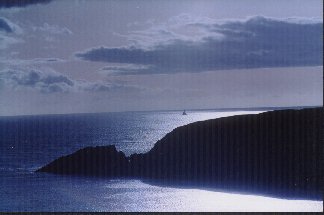 almost 2000 years ago.
almost 2000 years ago.
The area
around Baltimore and the Islands was settled by Celts  almost 2000 years ago.
almost 2000 years ago.
Despite
the aggressive O'Driscoll influence, a group of English settlers arrived in
Baltimore in 1607, having fled from south west England, where piracy was
punished by hanging - perhaps they felt safer in a place which appeared to
condone it! In 1609 the double-dealing Sir Fineen leased the harbour to Sir
Thomas Crooke, who attempted to organise the newcomers. However, Sir Fineen also
owed money to Sir Walter Coppinger, another large landowner, and Sir Walter
claimed the harbour in lieu of the debt.
The
infamous Sack of Baltimore took place whilst the arguing was continuing, on June
20th, 1631. Algerian pirates were guided into the harbour by a Dungarvan man.
The Algerians killed two people and took over a hundred people away with them as
slaves to North Africa.
The
allegation is sometimes made that the raid may even have been organised by the
O'Driscolls, who did not care to see their lands being taken over by English
settlers - You'd never know!
Baltimore
hit its lowest point after the Sack when, it is said, many people moved up river
to Skibbereen, where they felt less exposed to the vagaries of piracy.
Thereafter, Baltimore became important only as a rotten borough, returning two seats to the English Parliament. Lord Carbery, in whose gift these seats were, received £15,000 when they were abolished following the Act of Union.